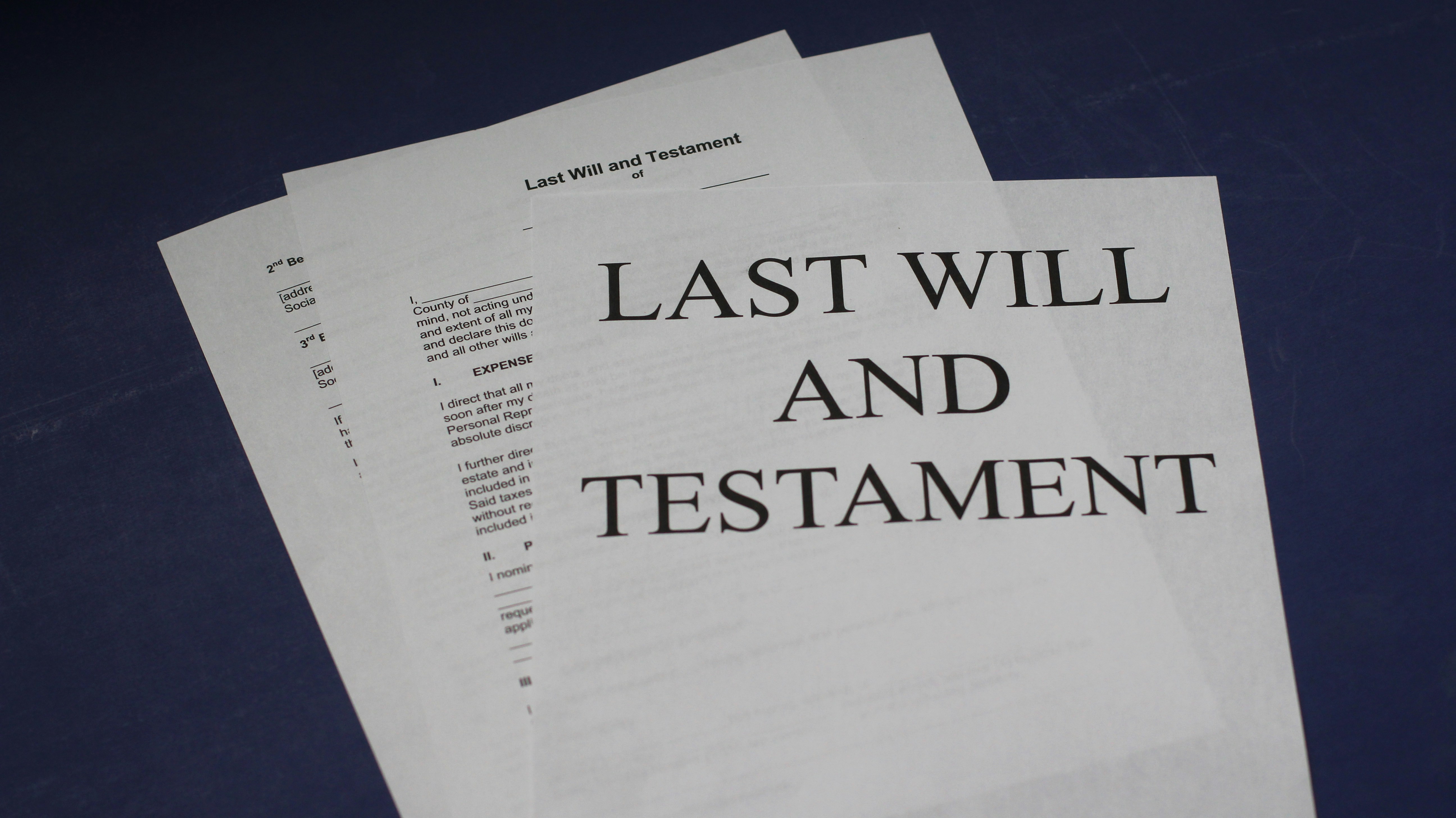
Introduction to Wills
A will is a legal document that outlines a person’s wishes regarding the distribution of their assets and the care of dependents after their demise. Its primary purpose is to ensure that one’s estate is managed according to their desires, thereby providing clarity and reducing potential conflicts among surviving family members. The significance of a will in estate planning cannot be overstated; it serves as a roadmap for how do I write a will that reflect one’s personal intentions, ensuring that loved ones are taken care of without the uncertainties of intestate succession.
One of the main reasons that everyone should consider drafting a will is to have control over the allocation of their possessions, including property, financial assets, and sentimental items. Without a will, the legal system will determine how one’s estate is divided, which may not align with their wishes. This scenario can lead to disputes among heirs, emotional stress for the family, and even legal battles that could prolong the settlement of the estate. Furthermore, a will allows individuals to appoint guardians for minor children, thereby safeguarding their future and ensuring that they are raised in an environment that reflects their values and beliefs.
The absence of a will can also have profound implications for an individual’s estate. Assets may be frozen during the probate process, leading to financial instability for dependents. Moreover, the state may impose its own rules regarding inheritance, which might not mirror the deceased’s intentions. Thus, understanding the importance of establishing a will is crucial in effective estate planning. As we delve deeper into this guide, it will become evident how do I write a will effectively, aiming to create a comprehensive document that honors the person’s wishes while providing peace of mind for their loved ones.
Types of Wills
When considering how to write a will, it is essential to understand the various types of wills available, as each serves a distinct purpose and caters to different needs. The most common type is the simple will, which outlines how a person’s assets will be distributed upon their passing. This type of will is straightforward, making it suitable for individuals with uncomplicated estate plans. It can be drafted without legal assistance, although consulting a lawyer may still ensure it meets state requirements.
Another type is the testamentary trust will, which creates a trust upon the testator’s death. This is particularly useful for individuals with minor children or those who wish to control the distribution of their assets over time, rather than transferring them outright. By establishing specific terms, the creator can ensure that their loved ones are cared for in a way that aligns with their wishes.
Joint wills are another variant, typically created by couples. This type of will combines both parties’ wishes into a single document. However, joint wills can limit flexibility, as they often include a provision preventing one party from altering the will after the other’s death. Couples should consider their long-term plans when deciding whether this type of will is appropriate.
Lastly, a living will, also known as an advance directive, details an individual’s preferences regarding medical treatment if they become incapacitated. While not a traditional will concerning asset distribution, it is an integral part of estate planning, as it outlines vital healthcare decisions. This document ensures that one’s preferences regarding life-sustaining measures and other medical treatments are respected.
By understanding these different types of wills, individuals can make informed choices in their estate planning process. Whether opting for a simple will or a more complex setup like a testamentary trust, knowing one’s options is crucial in ensuring that one’s wishes are honored after their passing.
Key Components of a Will
Understanding how to write a will involves recognizing its fundamental components, which must be meticulously structured to ensure legal validity and clarity in asset distribution. The first essential element of a will is the testator’s information. This section includes the full name, address, and any pertinent details that confirm the individual’s identity. It is crucial as it establishes who is articulating their final wishes and ensures that the document is legally binding.
Next, the beneficiaries must be explicitly identified. These individuals or entities are the recipients of the testator’s assets upon their passing. Articulating the full names and relationship to the testator helps prevent any misunderstandings or disputes after the individual’s death. It is advisable to specify both primary and contingent beneficiaries to address scenarios where the primary individuals may predecease the testator or be unable to inherit.
Another critical component is the appointment of an executor. This person is responsible for administering the estate and ensuring that the will is executed according to the testator’s desires. The role of the executor includes settling debts, distributing assets, and managing any tax implications. Choosing a trustworthy individual is essential, as they play a key role in transitioning the testator’s wishes into actions.
If there are minor children, the will must also designate guardians. This decision is one of the more significant choices a testator can make, as it directly affects the upbringing of their children. The appointed guardians will assume responsibility for the children’s well-being, so careful consideration is warranted.
Finally, specific bequests should be included in the will. This involves detailing particular items or amounts of money to be given to chosen beneficiaries. Such explicit instructions help ensure that sentimental items or specific desires are honored while minimizing potential disputes among heirs.
Legal Requirements for Writing a Will
When considering how to write a will, understanding the legal requirements is crucial, as these can vary significantly depending on the jurisdiction. A will, also known as a testament, must adhere to specific legal standards to ensure its validity and enforceability. One of the primary requirements is the age of the testator, who is the individual creating the will. In most jurisdictions, the testator must be at least 18 years old, although some places permit minors to create wills under certain circumstances. It is essential to check the local laws regarding age restrictions.
Another fundamental requirement is that the testator must possess the mental capacity to make a will. This means they should be of sound mind, which entails understanding the nature of the document they are drafting and the implications of their decisions. If a testator is deemed mentally incompetent at the time of writing, the will may be contested in court, leading to delays and complications for the heirs.
Witnessing requirements also play a vital role in the process of writing a will. Most jurisdictions necessitate that the will be signed in the presence of at least two witnesses who are not beneficiaries. These witnesses must acknowledge the testator’s signature and their intent to create a will, ensuring there is no undue influence or coercion involved. Additionally, the witnesses should be of legal age and possess the mental capacity to understand their role in the procedure.
Lastly, while notarization is not universally required, it can lend additional credibility and help prevent disputes over the will’s authenticity. Many jurisdictions allow for a notary public to witness the signing, further solidifying the document’s legal standing. Ultimately, by adhering to these legal requirements, individuals can avoid potential pitfalls and create a valid will that reflects their wishes accurately.
Steps to Write a Will
Writing a will is an essential task that ensures your wishes are honored after your passing. To begin the process, it is crucial to gather all necessary documents, such as a list of your assets, family information, and any relevant legal forms. This step will provide a clear overview of your estate and help facilitate the creation of your will.
Once you have compiled your documents, the next step is to determine how you want to distribute your assets. Consider who will receive specific items and evaluate any financial contributions or responsibilities. Clearly specifying these wishes can prevent disputes among beneficiaries and clarify your intentions.
After establishing the distribution of your assets, you can move on to drafting the actual text of the will. Start by clearly identifying yourself, including your full name and address, to confirm your identity. Next, declare that the document is your will and specify that you revoke any previous wills to avoid confusion.
When outlining your wishes, employ straightforward language and a logical structure. Use headings and bullet points to categorize different sections, such as personal belongings, real estate, and financial assets. This enhances readability and ensures that your intentions are easy to understand. Additionally, avoid legal jargon or overly complex phrases, which may lead to misunderstandings.
Furthermore, include provisions for the appointment of an executor—someone responsible for managing your estate according to your wishes. It is also wise to name alternate executors or guardians for minor children to prevent complications if a primary choice is unable to fulfill the responsibilities.
Finally, review your document carefully and consider consulting with a legal professional to ensure its validity and compliance with local laws. This can significantly enhance clarity and prevent common pitfalls associated with writing a will. By systematically following these steps, you can ensure that your will is effective and accurately reflects your desires.
Common Mistakes to Avoid
When considering the question of how do I write a will, one must recognize several common pitfalls that can undermine the effectiveness and validity of the document. A will serves to articulate an individual’s desires regarding the distribution of their assets upon death. To achieve this goal, clarity and precision in language is paramount. Vague terms and ambiguous instructions can lead to misinterpretations, potentially resulting in disputes among beneficiaries. Thus, it is essential to employ clear and concise language that unambiguously conveys the testator’s intentions.
Another frequent error arises from improper witnessing. Legal requirements for witnessing vary by jurisdiction, but failing to meet these can render a will invalid. Most states require that witnesses be disinterested parties—individuals who will not inherit anything from the will. It is advisable to ensure that all legal stipulations regarding witnesses are rigorously followed to avoid undue complications in the probate process.
Additionally, many individuals neglect to update their wills as their circumstances change. Life events such as marriage, divorce, births, or deaths in the family can significantly influence one’s estate plan. Failing to revise a will to reflect these changes can lead to unintended outcomes, where assets may not be distributed as the testator intended. Regular reviews of the will, ideally every few years or after major life changes, can help maintain its relevance and effectiveness.
Finally, overlooking the significance of seeking professional advice can be detrimental. While some may prefer a DIY approach to creating a will, consulting an attorney can provide valuable insights into the legal requirements and implications of will creation. By recognizing and addressing these common mistakes, individuals can enhance the reliability of their will, ensuring it accurately reflects their wishes and adheres to legal standards.
How to Store a Will Safely
Once you have successfully navigated the process of crafting your estate plan, the importance of securely storing your will cannot be overstated. A will serves as a vital document that outlines your wishes and ensures that your affairs are handled according to your intentions after your passing. Therefore, selecting a safe storage solution is paramount to safeguarding its integrity and accessibility.
One popular option is utilizing a safe deposit box, which is held at a bank or financial institution. This method significantly reduces the risk of damage, theft, or loss, while also offering a secure environment. However, it is crucial to inform your designated executor or a trusted family member about the location and access procedure to the safe deposit box. This step ensures that your will can be retrieved without unnecessary delay when needed.
Alternatively, consider using a home safe. A fireproof and waterproof safe located in a secure part of your home can offer significant protection against common risks. Be certain to choose a safe that is both reliable and user-friendly. Moreover, it is advisable to notify someone you trust regarding its location and its combination or key to prevent complications in the future.
In today’s digital age, electronic storage solutions are another viable option for safeguarding your will. Scanning and storing your will in a secure cloud service can ensure it remains accessible from anywhere. Nonetheless, it is essential to ensure that these digital files are well-protected, necessitating strong passwords and encryption methods.
Ultimately, regardless of the storage method you choose, it is imperative to communicate the location of your will to trusted individuals. This clear indication will facilitate the accessibility of your will, thus ensuring your intentions are honored promptly and effectively. Secure storage of your estate planning documents is a vital aspect of how do I write a will, ensuring peace of mind for both you and your loved ones.
Updating Your Will
Creating a will is an essential step in ensuring your wishes are honored after your passing. However, a will is not a static document; it requires regular review and possible updates to reflect your current life circumstances. There are several key life events that can serve as important triggers for updating your will. Understanding these events is crucial to ensuring that your will remains valid and accurately represents your intentions.
One of the primary reasons you may need to revise your will is marriage. When you marry, it is important to update your pre-existing will to include your new spouse, as well as any shared assets. Conversely, divorce is another major life event that necessitates changes to your will. In many jurisdictions, divorce automatically revokes any provisions for an ex-spouse, but it is still prudent to explicitly revise your will to reflect your current wishes regarding asset distributions.
The birth of children is another significant milestone that should prompt an update to your will. It is essential to include your children as beneficiaries and, if necessary, designate guardians to care for them. Additionally, changes in financial status, whether positive or negative, can influence how you wish to distribute your assets. For instance, significant financial gains, like an inheritance, might lead you to provide for more beneficiaries. Alternatively, a loss of assets may require you to reassess how your remaining assets are divided.
It is generally advisable to review your will every few years or after any substantial life event. This will ensure that your testamentary document remains aligned with your current circumstances and wishes. Keeping your will updated helps avoid complications and disputes among heirs in the future. In conclusion, staying proactive about updating your will is key to guaranteeing that your intentions are accurately upheld in the event of your passing.
Conclusion
In concluding this comprehensive guide on how to write a will, it is essential to emphasize the critical role a will plays in ensuring that one’s wishes are honored after their passing. A legally binding document not only governs the distribution of assets but also provides clear directions regarding guardianship for minors and other important matters. The absence of a will, or intestacy, can lead to prolonged disputes among heirs and unintentional distribution of property according to state laws, which may not reflect the testator’s true intentions.
As discussed, drafting a will involves careful consideration of various elements, including appointing an executor, identifying beneficiaries, and possibly setting up trusts. It’s advisable to take the time to reflect on these factors thoroughly. For individuals unsure about how do I write a will, seeking the counsel of a qualified estate attorney can provide clarity. A professional can help navigate complex legal terminology and ensure compliance with state requirements, making the process smoother and more effective.
For those who prefer a more hands-on approach, various resources are available to guide individuals through the will-writing process. Online tools and templates can simplify the task of creating a will, but one must be cautious to ensure that these resources meet legal standards in their state. Consulting with legal professionals may also provide valuable insights and prevent potential pitfalls that could arise from improperly drafted documents.
Ultimately, taking the step to draft a will is a responsible act that safeguards your legacy and ensures that your loved ones are taken care of according to your wishes. Please consider starting this important process today, ensuring peace of mind for both you and your family.











